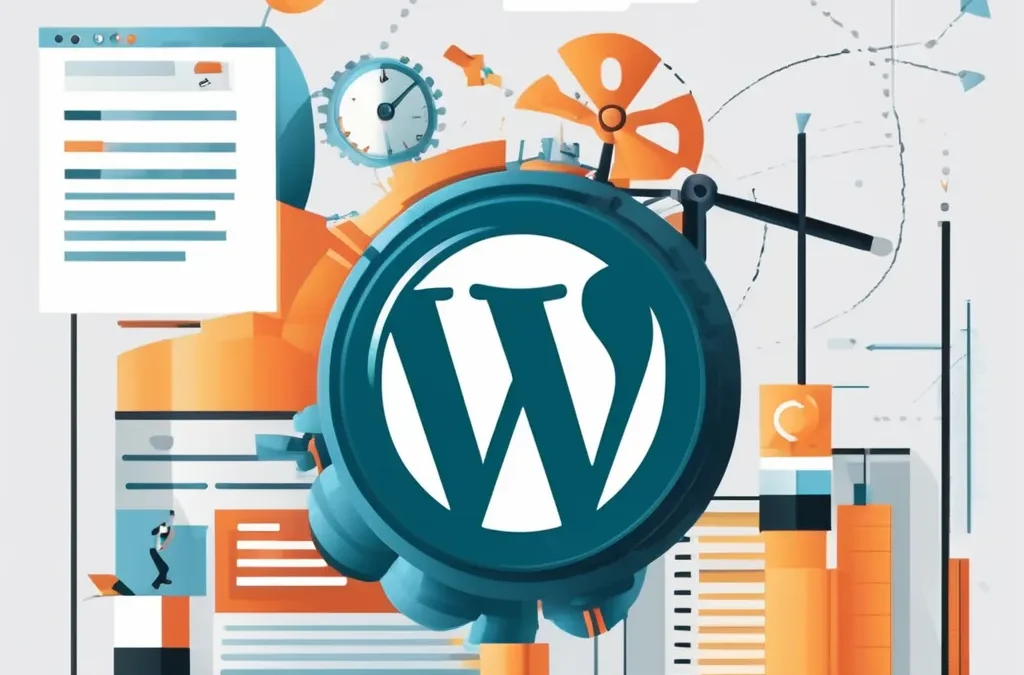How to Speed Up WordPress Sites
Contents
- 1 How to Speed Up WordPress Sites
Speeding up your WordPress site can make a big difference. Did you know that even a one-second delay can lose you 7% of your visitors? That’s a lot! When we talk about how to speed up WordPress sites, we’re focusing on making your website load faster. This is important because a faster site improves user experience and helps your site rank better on search engines. In this article, we’ll explore easy and effective ways to speed up WordPress sites. Whether you’re new to WordPress or looking to enhance your site’s performance, these tips will help you create a smoother, faster website.
Understanding the Factors That Slow Down WordPress Sites
To speed up WordPress sites, we first need to understand what makes them slow. There are several common issues that can reduce your site’s speed:
Web Hosting Configuration Issues
Your hosting choice plays a big role in your site’s speed. Poor hosting can make your site load slowly. It’s like having a small kitchen when you need to cook a big meal—it just doesn’t work well. Choosing a reliable host ensures your site runs smoothly.
Large Page Sizes
Big images and files can slow down your site. Think of your website as a book; large images are like heavy pages that take longer to turn. Optimizing images and reducing file sizes help your site load faster.
Inefficient Plugins and Themes
Too many plugins or a poorly coded theme can drag your site down. It’s like trying to carry too many things at once—it slows you down. Choosing efficient plugins and a good theme is crucial for a speedy site.
How to Identify Performance Bottlenecks
To find out what’s slowing down your site, use tools like GTmetrix and Google PageSpeed Insights. These tools show you specific problems and help you fix them.
Best Practices for Speed Optimization
Now that we know what slows down WordPress sites, let’s look at ways to speed up WordPress sites effectively.
Use a Caching Plugin
Caching plugins create static versions of your site, which load faster. Popular options include WP Rocket, W3 Total Cache, and WP Super Cache. These plugins store your site’s data, making it quicker for visitors to access.
How to Configure Caching Plugins
- Install the Plugin: Go to your WordPress dashboard, navigate to Plugins > Add New, and search for your chosen caching plugin.
- Activate the Plugin: Click Activate.
- Configure Settings: Follow the plugin’s setup wizard or manually adjust settings for optimal performance.
- Test Your Site: Use tools like GTmetrix to ensure the caching is working correctly.
Optimize Image Sizes and Formats
Large images can slow down your site. Use tools like WP Smush and Autoptimize to compress images without losing quality. Smaller images load faster, making your site quicker.
Convert Images to Next-Gen Formats
Next-gen formats like WebP and AVIF offer better compression. They reduce image sizes more than traditional formats like JPEG and PNG. This helps speed up WordPress sites even more.
Minify and Combine CSS and JavaScript Files
Minifying reduces the size of your CSS and JavaScript files by removing unnecessary characters. Combining files decreases the number of server requests. Both actions help your site load faster.
Recommended Tools for File Optimization
Plugins like Autoptimize and Async JavaScript can manage your CSS and JavaScript files. They make sure your files are optimized and work well together.

Speed Up WordPress Sites
Advanced Techniques for WordPress Speed Optimization
For those looking to take their site’s speed to the next level, here are some advanced tips.
Use a Content Delivery Network (CDN)
A CDN distributes your site’s content across multiple servers around the world. This means visitors load your site from the nearest server, which makes it faster.
Best CDN Options for WordPress
Consider using CDNs like Cloudflare, StackPath, and SiteGround CDN. These services are reliable and easy to integrate with WordPress.
Enable Persistent Object Caching with Redis or Memcached
Persistent object caching stores database queries in memory, reducing the load on your database. This makes your site respond faster.
Setting Up Redis on WordPress
- Choose a Hosting Provider: Ensure your host supports Redis.
- Install Redis: Follow your host’s instructions to install Redis on your server.
- Configure WordPress: Use a plugin like Redis Object Cache to connect Redis with your WordPress site.
- Test Performance: Check your site speed to see the improvements.
Mobile Optimization for WordPress Sites
With more people using mobile devices, it’s essential to ensure your site is optimized for them.
Optimize Mobile Page Speed
Use Accelerated Mobile Pages (AMP) and enable lazy loading for images. AMP creates lightweight pages that load quickly on mobile devices. Lazy loading ensures images only load when they’re needed, saving data and time.
Tools for Mobile Speed Testing
Use tools like Google’s Mobile-Friendly Test and WebPageTest to check your mobile site’s speed and make necessary improvements.
Regular Maintenance for Optimal Speed
Keeping your site fast requires ongoing maintenance. Regular tasks help maintain your site’s performance over time.
Clean Up Your WordPress Database Regularly
Over time, your database can get cluttered with unnecessary data. Use plugins like WP-Optimize to clean up and optimize your database, making your site run smoother.
Perform Regular Plugin Audits
Too many plugins can slow down your site. Regularly review and deactivate or remove plugins you no longer use. This helps keep your site lean and fast.
Frequently Asked Questions
What is the best caching plugin for WordPress?
WP Rocket is highly recommended for its ease of use and effectiveness. Other good options include W3 Total Cache and WP Super Cache.
How do I optimize my WordPress site for mobile users?
Use responsive themes and enable lazy loading for images. Tools like AMP can also help create faster mobile pages.
Do I need a CDN for a local business website?
Yes, even local businesses can benefit from a CDN. It ensures your site loads quickly for all visitors, regardless of their location.
Conclusion
Speeding up your WordPress site is essential for keeping visitors happy and improving your search rankings. By understanding what slows down your site and applying the best practices we’ve discussed, you can make your site faster and more efficient. Start with simple steps like using a caching plugin and optimizing images, then explore advanced techniques like using a CDN and enabling object caching. Regular maintenance is key to keeping your site running smoothly. Take action today to speed up WordPress sites and enjoy the benefits of a faster, more responsive website.

